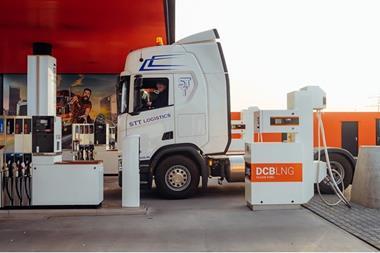
Having recently been asked to help ‘sort out’ some company accounts that were ’a little behind’, it came as something of a shock to log in to their accounting system only to find the first screen showing over 700 (yes, that’s seven hundred!) unreconciled bank transactions on just one of (several) bank accounts.
In over 40 years accounting practice, that is a personal record, and one that I hope is never beaten.
After a strong coffee (actually, I lie: it was something stronger…) and a bit of digging into the recent history of the business, the situation and reasons for it became a little more clear. It turned out that the business accounting had been transferred from an older, manual, system onto this particular platform at the start of the financial year (last April); the new system allowed automatic bank feeds so those were established. Consequently, the accounting system was being fed with 100 or so bank transactions every month. In the meantime there had been some issues with staff turnover, illness, etc, and various people had been given the task of simply doing the very ‘basics’ in terms of accounting: raise sales invoices, input the major purchase invoices, prepare and file a VAT return every quarter, and suchlike. But now as it approached the next financial year-end, it was time to bring things properly up to date – or else leave it to the year-end accountants to do it. While I’m sure that they would be pleased to undertake that sort of work (and bill for it at rather enormous rates), at the very least it would delay completion of the financial accounts, and anyway, the owners wanted to get a more accurate ‘fix’ on the financial status of the business before the end of the current financial year.
With a lot more coffee and some late nights, it will get ‘sorted’ and brought up to date, maybe even before the end of March. But it did remind me that there are probably many businesses that have experienced something similar. Even in this age of everything seemingly being connected to everything else, with different ’apps’ (and as a side note, personally, I hate that word: much prefer the older term ‘software’), all talking to each other through cyberspace.
Until artificial intelligence gets much better, all accounting systems still rely on human oversight and occasional intervention. In the absence of such, the systems will still run, but they’ll churn out incomplete - and and hence very misleading - information. There used to be a phrase in the computing business which isn’t often heard today: ’GIGO’ – it meant ’Garbage In = Garbage Out’. While few people use it now, it’s still as true today as it was back in the 1980s and earlier. Unfortunately many business owners and operators don’t want to think about it; they’d rather believe that technology has moved on so much that everything is neatly prepared for them simply to press a button and obtain the (accurate) information that they need almost instantly.
That’s still as much of a pipe-dream as the other big sales pitch that used to be associated with office and accounting technology - the ‘paperless office’. You weren’t supposed to need to buy reams of A4, photocopier and printer cartridges, etc - any more than you needed ‘book-keepers’. That was all supposed to go out of the window along with other artefacts of the 20th Century analogue world: cash-registers, vinyl LPs, film cameras, and (so on). Even the term ‘book-keeper’ has a very old-fashioned feel to it, bringing up images of middle-aged spinsters sitting in a dingy office performing the same routine in the same way for dozens of years, never taking a holiday. The reality is (and has usually been) somewhat different.
In the real world, ‘book-keepers’ were usually people who had a very thorough understanding of both the business that they worked for and of prevailing accounting practices. On a day-today basis, they usually knew things in their heads that many business owners had to look for from paper (or later, computer screens): which customers paid on time, which had to be chased for payment; which suppliers needed paying at which point in the month; how to time bank payments so as to stay within any account limits, etc. And even when they stopped having to make prime accounting entries - because ‘the computer’ was being fed with data from somewhere else - that gave them more time to investigate and correct the inevitable errors and mis-postings that can still occur, even with the most sophisticated ‘automatic’ accounting systems. Put simply, an experienced book-keeper had a ‘feel’ for how a business was performing and by constantly reviewing the output from the accounting system could make sure that it was essentially correct. And up to date.
Unfortunately many business owners fell for the idea that by buying and installing the latest technology, they could dispense with old-fashioned book-keeping for ever. After all, who needs to employ a book-keeper when there are adverts on TV showing how you can run a business using an accounting ’app’ on your tiny mobile phone screen – while you’re sitting by the pool in some remote holiday villa?
The accountancy profession collectively has to take some responsibility here. It rarely cautioned business owners that technology was really intended to assist in speeding up accounting work and making it more accurate. Instead, faced with techno-salespeople promising massive improvements in efficiency (essentially by simply getting rid of people from the workplace), accountants generally acquiesced and kept their reservations to themselves. In part that was because none of us wanted to be seen as Luddites standing in the way of progress; and anyway there was always the consolation that ultimately, if (or rather, when) DIY accounting went wrong, the client would still need an accountant to sort it all out for them anyway – eventually.
Modern cloud-based accounting systems are generally brilliant. Convenient, quick and efficient and in many respects very easy to use. For accountants. Like any systems, they need to be carefully set up to match the requirements of an individual business; and they need to be regularly checked, especially if the nature of transactions (whether that’s the type of sale, purchase, or payment method) changes during the year. The problem is that unless that’s done by someone who understands ‘accounting’, then things can go wrong. And if that happens, error builds upon error and the accuracy of the output can degenerate quite catastrophically.
Of course, some business owners do understand ‘accounting’ and might not see a problem in using their mobile to do their own accounting from a beach. But if that’s your situation, ask yourself whether you might not find more profitable use of your own time (or more enjoyable holidays) if you knew that there was a responsible individual keeping their eyes on the process for you at regular intervals – and correcting errors before they snowball?

































No comments yet